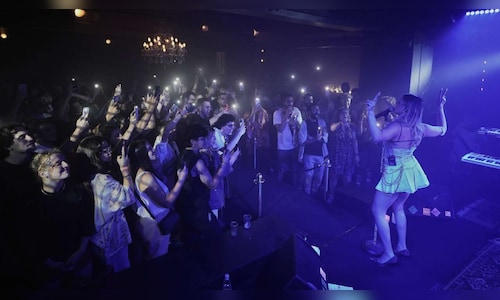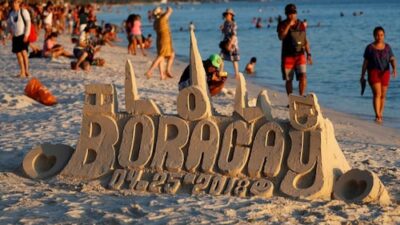In the decade following the war, visitors from Gulf nations—especially Saudi Arabia—returned, rekindling Lebanon’s economy. However, by the early 2000s, as the Iran-backed Hezbollah gained power, relations with Gulf countries began to deteriorate. This decline in tourism deprived the economy of billions in annual revenue.
In the wake of last year’s intense conflict with Israel, Hezbollah’s influence has waned, and Lebanon’s new political leaders see a chance to rejuvenate the economy with support from wealthy neighbors. They aspire to disarm Hezbollah and restore ties with Saudi Arabia and other Gulf nations, which have recently restricted their citizens from visiting Lebanon or importing its products.
Also read | France visa update: Online booking made mandatory for all applicants under new digital system
“Tourism is a significant catalyst, making it crucial for the bans to be lifted,” explained Laura Khazen Lahoud, the tourism minister. Along the highway to Beirut airport, what were once prevalent banners celebrating Hezbollah’s leadership have been replaced by commercial advertising and posters proclaiming “a new era for Lebanon.” In central Beirut, especially in neighborhoods aiming to attract tourists, political posters are being removed, with increased police and army presence.
Signs indicate thawing relations with certain Gulf neighbors, as the United Arab Emirates and Kuwait have lifted longstanding travel bans.
Attention now turns to Saudi Arabia, a key political and economic player in the region, to determine if it will similarly ease restrictions, according to Lahoud and other Lebanese officials. Security remains a critical concern, these officials note. Despite a ceasefire with Israel since November, airstrikes continue near daily in southern and eastern Lebanon, areas where Hezbollah has established its political strength and military arsenal.
Also read | Iran blasts Donald Trump over US travel ban, says it shows ‘deep hostility’ for Iranians, Muslims
Although tourism is vital—accounting for nearly 20% of Lebanon’s economy prior to its decline in 2019—officials emphasize it is just one element of a broader strategy they are endeavoring to implement.
Lebanon’s agriculture and industry sectors are in disarray, suffering a significant setback in 2021 when Saudi Arabia halted their exports, accusing Hezbollah of drug smuggling into Riyadh. Years of economic dysfunction have left the country’s once-prosperous middle class in dire straits.
The World Bank reports that poverty has nearly tripled in Lebanon over the past decade, impacting close to half of its nearly 6 million residents. To add to the woes, inflation is soaring, with the Lebanese pound plummeting 90% in value, and many families lost their savings amid banking collapses.
Lebanon’s leaders view tourism as the best avenue for rebuilding relationships with Gulf nations—only then can they pursue exports and other economic growth avenues.
“It makes the most sense, as that’s essentially all Lebanon has to offer now,” remarked Sami Zoughaib, research manager at The Policy Initiative, a think tank based in Beirut.
With summer still several weeks away, flights to Lebanon are already fully booked with expatriates and locals from countries that have lifted their travel bans, and hotels report a surge in bookings.
At the tourism ministry’s recent event, St. Georges Hotel owner Fady El-Khoury expressed optimism. The hotel, a family-owned establishment, has experienced Lebanon’s ups and downs over the years, closing and reopening multiple times due to conflicts. “I feel that the country is on the path to recovery after 50 years,” he shared.
Also read | Trump’s latest travel ban: Even governments scramble to understand what it is
On a recent weekend, as crowds packed the beaches of the northern city of Batroun and jet skis sped across the Mediterranean, local business owners expressed hope that the country was heading in the right direction.
“We are happy, and everyone here shares that sentiment,” remarked Jad Nasr, co-owner of a private beach club. “After years of boycotts by Arab nations and our brothers in the Gulf, we expect to be fully booked this year.”
Nonetheless, tourism alone cannot solve Lebanon’s economic woes, which have been exacerbated by decades of rampant corruption and mismanagement.
Lebanon has engaged in talks with the International Monetary Fund for years to establish a recovery plan that would involve billions in loans and necessitate tackling corruption, restructuring banks, and improving a variety of public services, including electricity and water.
Without implementing these reforms, Lebanon’s affluent neighbors will remain hesitant to invest in the country, experts warn. A tourism surge would merely serve as a “temporary relief that doesn’t address the deepening poverty,” Zoughaib noted.
The tourism minister, Lahoud, concurred, acknowledging that a long-term process is just beginning.
“But we’re discussing topics we never addressed before,” she stated. “And I think the entire country has come to understand that war is detrimental to all and that we truly need our economy to recover and thrive once again.”



